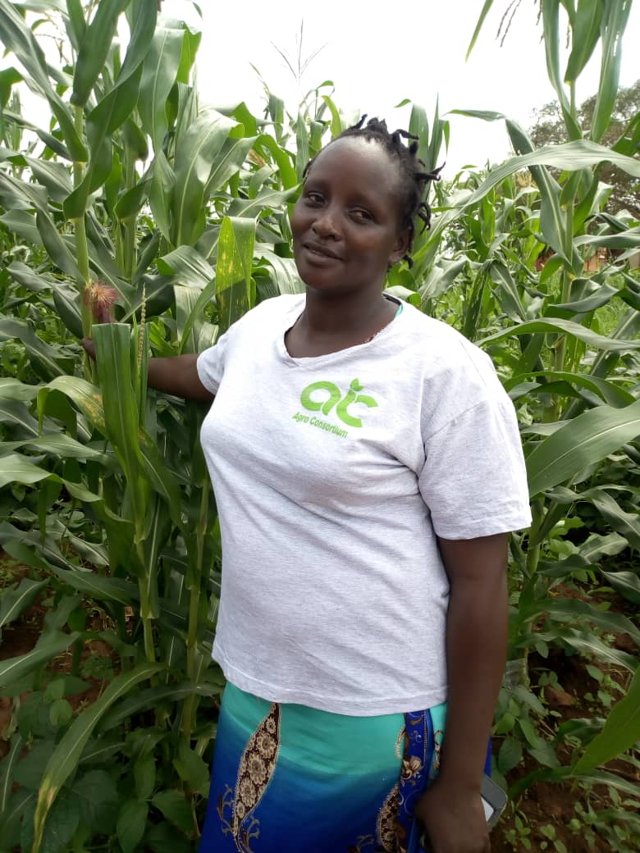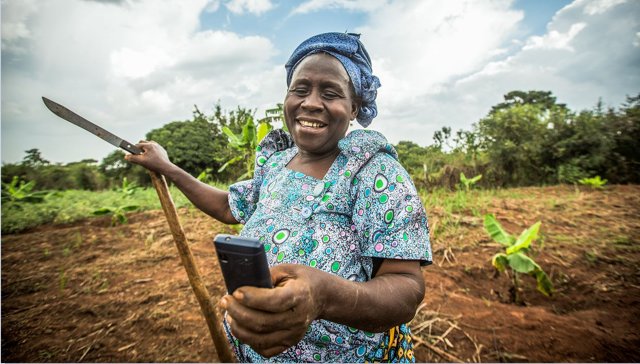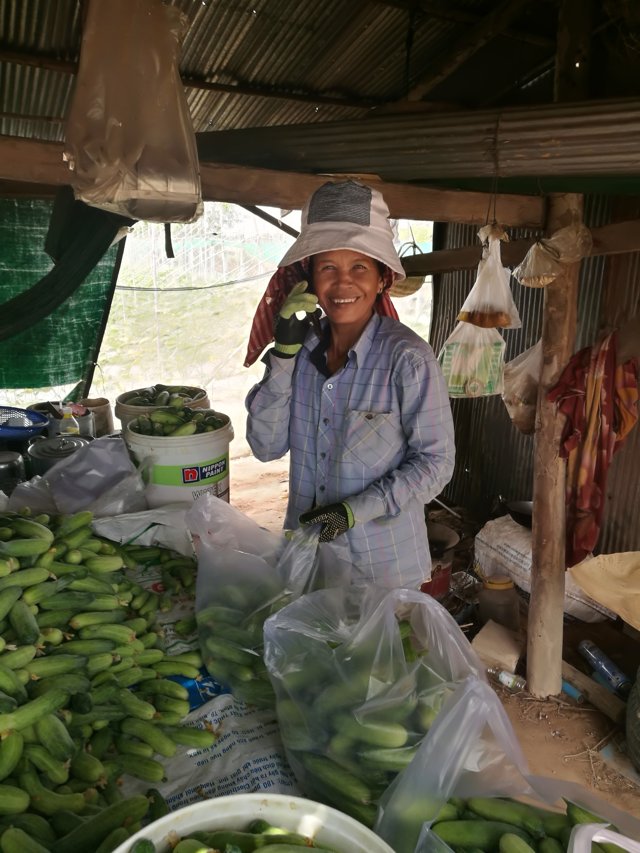Building rural women’s resilience
Every year, UN Women is calling for action to support rural women and grow their capacities to respond to climate change through agricultural production, food security, and natural resources management. Women farmers, still have less access to credit, savings, land, markets and they obtain lower prices for their crops. Gender equality is a core value of the Geodata for Agriculture (G4AW) Programme, which aims to improve food security and climate resilience in developing countries. Since 2013 the programme has made a considerable effort to provide smallholder men and women farmers access to agricultural information, technology and training in Africa and Asia. We’d like to introduce you to a few women farmers, and show you how satellite technology is building their resilience.
Access to finance
Differing from culture to culture, on average women have fewer opportunities to secure loans or get an insurance because, for instance, they less often own land which can be used as collateral. In Uganda Market-led, User-owned ICT4Ag-enabled Information Service (MUIIS) is an innovative G4AW project that harnesses the power of satellite data to support advisory and financial services including affordable index-based insurance to crop farmers in Uganda.

Teddy Akello, ©MUIIS
Teddy Akello is a MUIIS farmer and crop insurance beneficiary in the Apac district, in northern Uganda. “Before I had an insurance, I had many worries, about the quality of my seeds, or if the weather would be good. Since I receive insurance I no longer have to worry about the weather as I am sure I will be compensated if there is a lot or no rain. I am now at peace because of compensation from crop insurance. The weekly agronomy messages and farming tips make me feel confident of what I am doing. I do not have to walk long distances or pay for any training. I can get my farming practices from my phone. This season I got a text message telling me to go to my garden because there are high chances of pests. Indeed there were pests, but I was able to treat the crop before it got destroyed. Even without getting compensated, I am very happy that I get messages on farming tips and advice.”

Margret Kigozi, ©G4AW
Access to mobile internet
54% of women in low income countries now use mobile internet and the gender gap is narrowing. The gender gap is still the widest in South Asia at 51 % and remains fairly consistent in other regions such as Sub-Saharan Africa which has the second largest gender gap at 37 %. Lack of literacy, digital skills and high costs of mobile phones and services are the main barriers keeping women offline[1]. Margret Kigozi, grandmother and lifetime farmer in Uganda is using the low-cost satellite based drought insurance services provided by the G4AW Sum-Africa project. Something she could never do without a mobile phone. “I had never imagined satellite technology could be so helpful to agriculture. On my mobile phone I receive text messages on weather conditions and the implications these have for my farming practices”, says Margret. The impact of climate change has resulted in prolonged dry seasons where Margret lives. “Droughts are the most terrible seasons. We lose a lot of money during droughts. I cleared a whole piece of land cultivated maize and insured my maize field. The season didn’t go well, but the insurer compensated me and I didn’t lose out completely like I did in the past”.
Time constraints
Women spend more time doing household chores on average than men. Rural women typically work longer hours than men, as rural women often manage complex households, producing agricultural crops, tending animals, preparing food, collecting water, caring for family, and maintaining their homes[2]. The G4AW Angkor SALAD project is providing smallholder farmers with tailor-made advice to produce good quality vegetables. In Cambodia, the number of women farmers participating in the Angkor SALAD project is around 48%. The climate smart information service provided by Angkor SALAD is providing women access to knowledge and skills in horticulture that can accelerate their farming practices from mid-level to commercial levels, doing more work in less time.

Mrs. Heng Mai, ©Angkor SALAD
In Chikreng district, Siem Reap province, Mrs. Heng Mai grows Chinese Mustard Greens, Cucumbers, Hot Chili, Long Beans and Tomatoes, supplying the local market in her district. After receiving market information through her mobile phone on what crop should be grown for better income, she informs her husband to find the seeds, allocate land for each crop and begin preparing the land. Mrs. Heng Mai is responsible for maintaining crops, finding market information, and connecting to traders or collectors in the town to obtain the prices of vegetables. Through the AngkorSALAD app, Mrs. Heng Mai can use the G4AW market information services to connect with traders and to better understand market information for her produce